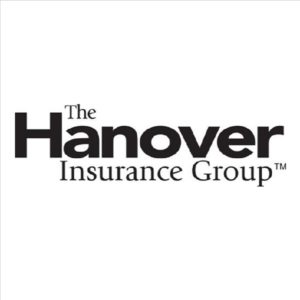 The Hanover Insurance Group could use some of the $950 million it will make from selling its Chaucer international specialty business to fuel organic growth, pursue select acquisitions and hire top talent from rivals, President and CEO John Roche told analysts.
The Hanover Insurance Group could use some of the $950 million it will make from selling its Chaucer international specialty business to fuel organic growth, pursue select acquisitions and hire top talent from rivals, President and CEO John Roche told analysts.
During the Sept. 13 call held to discuss the planned sale of Chaucer to China Re Group, Roche said that The Hanover has “more than adequate capital through our returns to fund current organic growth opportunities” and even accelerate growth. But some of the new “deployable capital” will help propel these actions even more, he said in response to questions during the call.
Roche said that there will be continued effort to look at “small to midsize” acquisitions, but also “increasing opportunities to look at talent moves as different companies change their focus.”
All of these actions will be both careful and strategic, Roche insisted.

“Our commitment is to make sure additional growth opportunities we put in front of us will be accretive and we focus on profitable growth,” Roche said. “As we get closer to [the Chaucer sale close], we hope to unveil some of the investments we will make to accelerate that profitable growth.”
At the same time, Roche told analysts not to expect some sort of giant-sized acquisition deal.
“We won’t do something highly transformational,” he said, by choosing to “throw a long pass and hope we score a touchdown. We hope to move the ball down field in a consistent pattern as we’ve done in the past and build on profitable growth as we’ve done in the past.”

In prepared remarks during the call, The Hanover Chief Financial Officer Jeffrey Farber explained that the insurer will also pursue stock buybacks and may even buy back debt, along with its strategy of “bolt-on type acquisitions through renewal rights, strategic hires and small-sized M&A” that is “very consistent with our historical activity.”
Chaucer Was a Good Thing, However…
Earlier in the call, Roche used prepared remarks to explain that Chaucer’s sale will help enhance the insurer’s strategy “to be the premier property and casualty company in the independent agency channel.” Plans call for focusing more on the insurer’s primary domestic property/casualty business, which has experienced healthy growth.
At the same time, Chaucer – acquired by The Hanover in 2011 – has been a big part of the insurer’s success up until this point, he added.
“Chaucer has been an important contributor to our company since we acquired the business in 2011,” he said. “It has surpassed our earnings expectations – consistently outperformed the Lloyd’s market – and delivered a very high return on our investment.”
Roche added that Chaucer “continues to successfully navigate the challenging conditions in the Lloyd’s market, building on its strong market position and exceptional reputation.”
If The Hanover decided to keep the Chaucer business, life would still have been good, Roche added.
“Had we elected to retain Chaucer, it would have continued to be an important and meaningful contributor to our company,” Roche said.
But by selling Chaucer, Roche pointed out that the transaction reduces The Hanover’s tail risk exposure to significant global catastrophe events.
“In years characterized by lower severity CATs in the U.S.” Chaucer has had a diversifying effect on our portfolio, contributing to overall earnings persistency,” Roche said. “However, Chaucer can compound our risk aggregation and losses in years characterized by higher, more severe catastrophe events in the U.S., as was evident during 2017.”
Selling Chaucer will help The Hanover stabilize its catastrophe risk profile “and make it more consistent with a U.S. primary insurance carrier” and reduce its capital requirements at the same time, Roche noted.
Source: The Hanover Insurance Group





















 New Texas Law Requires Insurers Provide Reason for Declining or Canceling Policies
New Texas Law Requires Insurers Provide Reason for Declining or Canceling Policies  State Farm Mutual to Pay $5B Dividend to Auto Insurance Customers
State Farm Mutual to Pay $5B Dividend to Auto Insurance Customers  Reinsurance Program Could Wipe Out Need for Calif. FAIR Plan: Legal Exec
Reinsurance Program Could Wipe Out Need for Calif. FAIR Plan: Legal Exec  Focus on Ski Guides After Deadly California Avalanche Could Lead to Criminal Charges, Civil Suits
Focus on Ski Guides After Deadly California Avalanche Could Lead to Criminal Charges, Civil Suits 








